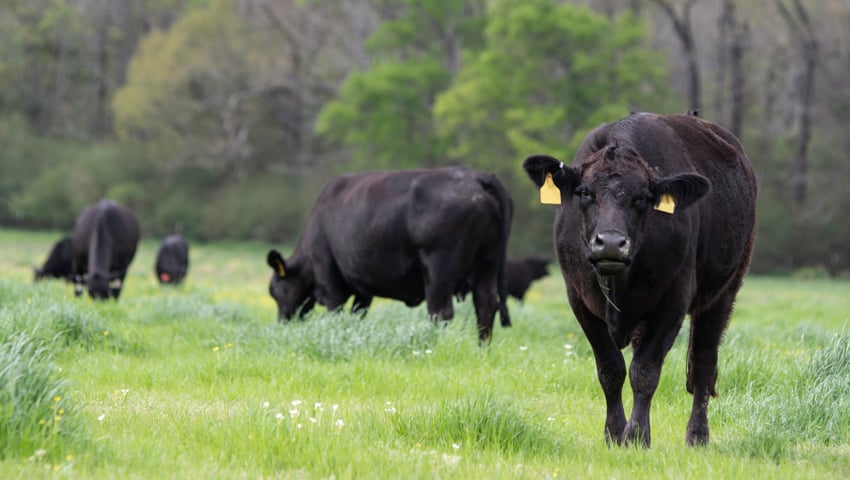A new report by the British Ecological Society brings together the expertise of over 40 academics, farmers and practitioners across the UK to assess the evidence around regenerative agriculture approaches achieving positive outcomes like improving soil health, increasing biodiversity and minimising environmental damage.
The report finds that there is strong evidence that soil health and biodiversity can improve under regenerative agricultural practices but a whole systems approach is needed for the best results. Individual practices, applied in isolation are rarely sufficient to deliver regeneration.
The report says that, “Research shows that implementing the principles of regenerative agriculture has the potential to provide environmental benefits. However, the practices selected should be tailored by the farmer to each individual farm to avoid undesirable outcomes. It is likely that the benefits and success of implementing the practices will depend on multiple contextual factors, including the principles and practices adopted, the farmer’s knowledge and skills, the farming system, the contemporary ecology of the farm and its location.
“Incorporating greater diversity in farm systems (by using multiple crop mixtures and rotations and incorporating livestock, especially when coupled with reduced inputs) can support greater biodiversity and potentially yields. It can also increase resilience to environmental variability such as summer droughts, or to fluctuations in commodity prices.”
The report addresses definitions of regenerative agriculture, the ecological evidence, potential long-term trade-offs, and opportunities and barriers for farmers.
It says that a consensus is emerging among experts that a combination of practice- and outcome-based indicators may be the best option for future assessment of regenerative agriculture.
The report acknowledges that yield loss is a concern for farmers thinking of transitioning to regen, but researchers point to evidence that initial yield reductions when transitioning may reduce or even reverse over the longer term through enhanced biodiversity and ecosystem services. However, they say that the evidence for this is variable, and realising these potential benefits takes time.
Dr Lucie Büchi, researcher in crop and weed ecology at The Natural Resources Institute of the University of Greenwich, and lead author on the report said, “Moving from one farming system to another is complex, difficult and risky. A whole systems approach is an ideal end goal, but this shouldn’t discourage farmers from picking up certain regenerative agriculture elements that they can implement on their farms. People need to start somewhere.”
To scale the take-up of regenerative agriculture, the report makes the following recommendations:
1. Increase support and advice to help farmers make the transition to regenerative agriculture – Both the accessibility and the quality of support and advice available to farmers need to be upgraded for regenerative agriculture’s positive principles and practices to become more widespread across the UK. To help farmers navigate through the complexity of the landscape towards regenerative agriculture, it’s essential to establish a robust network of mentors and facilitators who can offer context-specific advice and support.
2. Ensure farmer-led innovation is placed alongside scientific evidence to inform agricultural policy and practice – Success in regenerative agriculture will require recognition of different kinds of expertise and the development of a collaborative environment that builds strong institutions and rewards.
3. Use regenerative agriculture principles to co-design impactful and measurable agricultural policy – Integrating regenerative agriculture principles directly into agri-environment policy could further propel the uptake of sustainable practices. By recognising and leveraging farmers’ expertise, providing comprehensive support, and maintaining sustained engagement, policy could effectively drive the transition to a more sustainable agricultural future.
4. Advance innovation in regenerative agriculture – Innovative practices, experimentation and technological advancements are needed to propel the regenerative agriculture movement forward. To ensure continuous progress in regenerative agriculture, it is crucial to develop a comprehensive and forward-looking research agenda.
5. Ensure the credibility, transparency and consistency of regenerative agriculture initiatives across the whole supply chain – There is an important role for governments as well as the private sector to play in ensuring that such approaches remain rigorous, transparent and fair to producers and consumers.
Professor Nicola Randall at Harper Adams University, a lead author of the report, said, “Science and ecologists have a big part to play in regenerative agriculture along with farmers. There’s a perception that regenerative agriculture or nature friendly farming is going backwards, rediscovering past ways of farming. In actual fact, there’s a lot of exciting new technology and developments involved. The movement is very much forward looking.”
